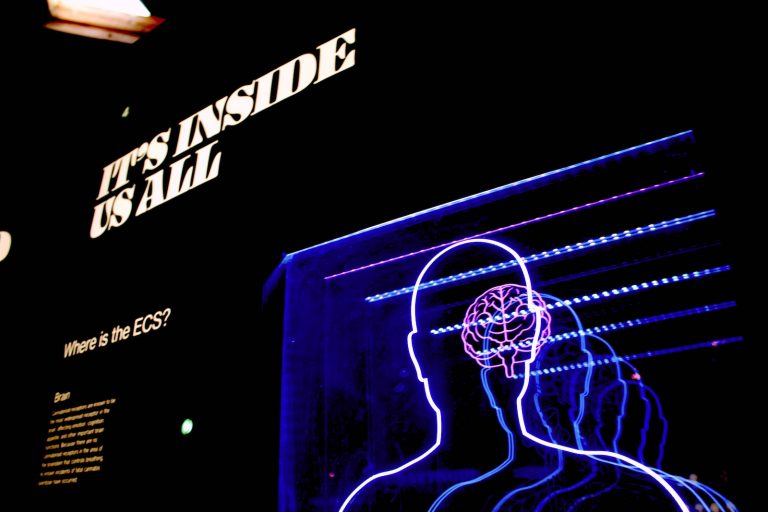In the grand tapestry of human health, a revelation promises to change our understanding of the mind and body connection: the intricate dance between our gut and brain. This isn’t just about those “gut feelings” you get, it’s about an organic, complex connection that affects everything from our mental state to our immune response. As you embark on this journey of discovery, prepare to be amazed at how something as seemingly simple as the food you eat can have profound impacts on your overall well being.
Story Stages
The Magic Inside Us
Did you know there’s a bustling universe right inside you? It’s not mystical; it’s microbial. Our intestines harbor trillions of microbes, ranging from bacteria to viruses and fungi, playing a monumental role in our health. But this isn’t just about digestion or a feeling of fullness. There’s a deeply intertwined connection between these microscopic inhabitants and our brain – the control center of our body and emotions. Emerging research is revealing the gut as the “second brain”. This doesn’t mean it can solve algebra or compose music, but it has its own nervous system. And guess what? It communicates with our primary brain – influencing mood, mental health, and even cognitive processes. Let’s deep dive into this riveting world and see how you can harness this knowledge and trust your gut for enhanced mental and physical health.
A Two-Way Street
The very thought of a “second brain” in our gut is fascinating, isn’t it? Here’s how it works: our gut and brain are connected by the vast vagus nerve. Signals travel both ways. Ever felt butterflies in your stomach when nervous? That’s the brain sending a memo. Conversely, an unsettled stomach can send distress signals to the brain, possibly leading to mood changes. The microbiota, the community of microorganisms in our gut, produce various neurochemicals our brain uses to regulate basic physiological and mental processes. They play a role in producing serotonin, a neurotransmitter that manages mood and emotions.
It’s Not Just About Pain
Most of us brush off a chronically irritated stomach, chalking it up to bad food or just a bad day. But remember the two-way street we spoke about? An upset gut doesn’t just cause discomfort; it can lead to a cascade of issues. Inflammation is the body’s response to irritants or threats. But when the gut is continually inflamed, it might mean that the beneficial microbes are outnumbered by the harmful ones. This imbalance doesn’t just remain confined to your stomach; it might affect your mood, mental acuity, and even your susceptibility to illnesses. Think of your gut as a garden. If weeds dominate, not only do they choke the good plants, but the entire garden (your body) suffers.
More than Just Diet
It’s tempting to think that all we need for a healthy gut is the right diet. While diet plays a crucial role, other factors are equally essential. Stress, for instance, can wreak havoc on your gut. Ever had an upset tummy before an important event? That’s stress influencing your gut. Regular exercise, proper sleep, and even exposure to a natural environment can boost the diversity and health of the gut microbiota. It’s all interconnected, and while diet lays the foundation, a holistic approach to life nurtures the gut-brain relationship.
Not a Magic Pill, But a Useful Tool
Walking through a health store, you’ve probably seen an array of gut health supplements. Probiotics, prebiotics, digestive enzymes – it’s a bustling market. But what role do they play? Supplements can be especially beneficial when restoring gut health after an imbalance, like after a bout of illness or a course of antibiotics. Probiotics replenish the good bacteria, prebiotics feed them, and enzymes assist in breaking down food more efficiently.
However, not all supplements are created equal. Quality, dosage, and strain of bacteria matter. It’s also worth noting that while supplements can be beneficial, they should complement a healthy lifestyle, not replace it. Always consult with a healthcare professional before starting any supplement regime.
Embracing the Gut-Brain Power
Understanding the gut-brain connection gives you a unique power. By nurturing your gut, you’re supporting digestion and paving the way for better mental health and resilience against diseases. Embrace this relationship. Listen to what your gut and body are saying, respond with care and attention. Seek balance, not just in what you eat but how you live. The future of holistic health recognizes that every part of us is intertwined, with the gut-brain connection being a cornerstone of this understanding.
The story of the gut and brain is more than just a tale of two organs. It’s a symphony of interactions, feedback loops, and mutual influences. Our journey of understanding has just begun, but one thing’s for sure – the path to holistic wellbeing lies in acknowledging and nourishing this profound connection. Prioritize your gut health, not just for its sake but for the harmony it can bring to your mental sphere. And as you continue to discover, research, and explore, always remember: your health is an orchestra, and the gut-brain connection is one of its most beautiful symphonies.
